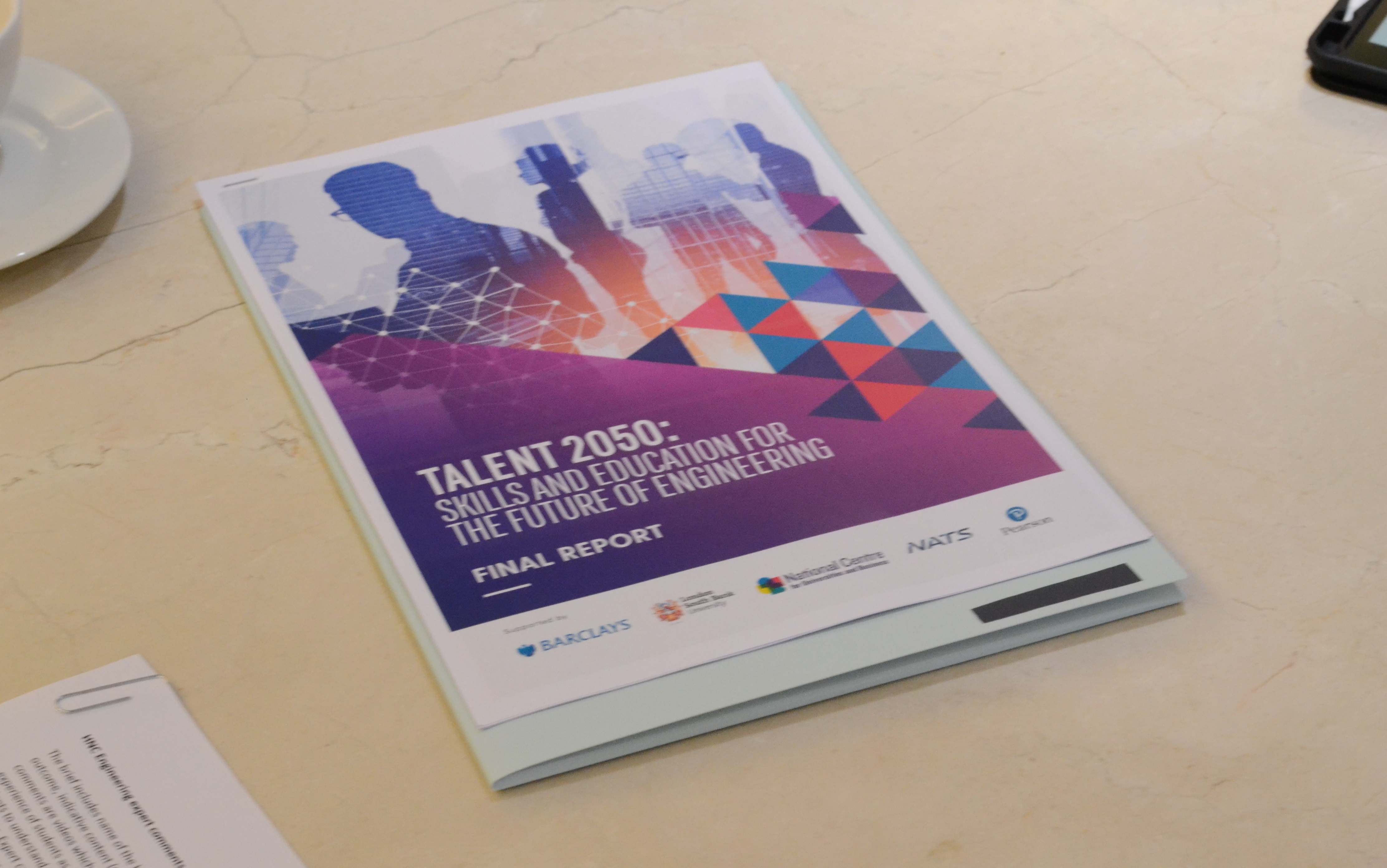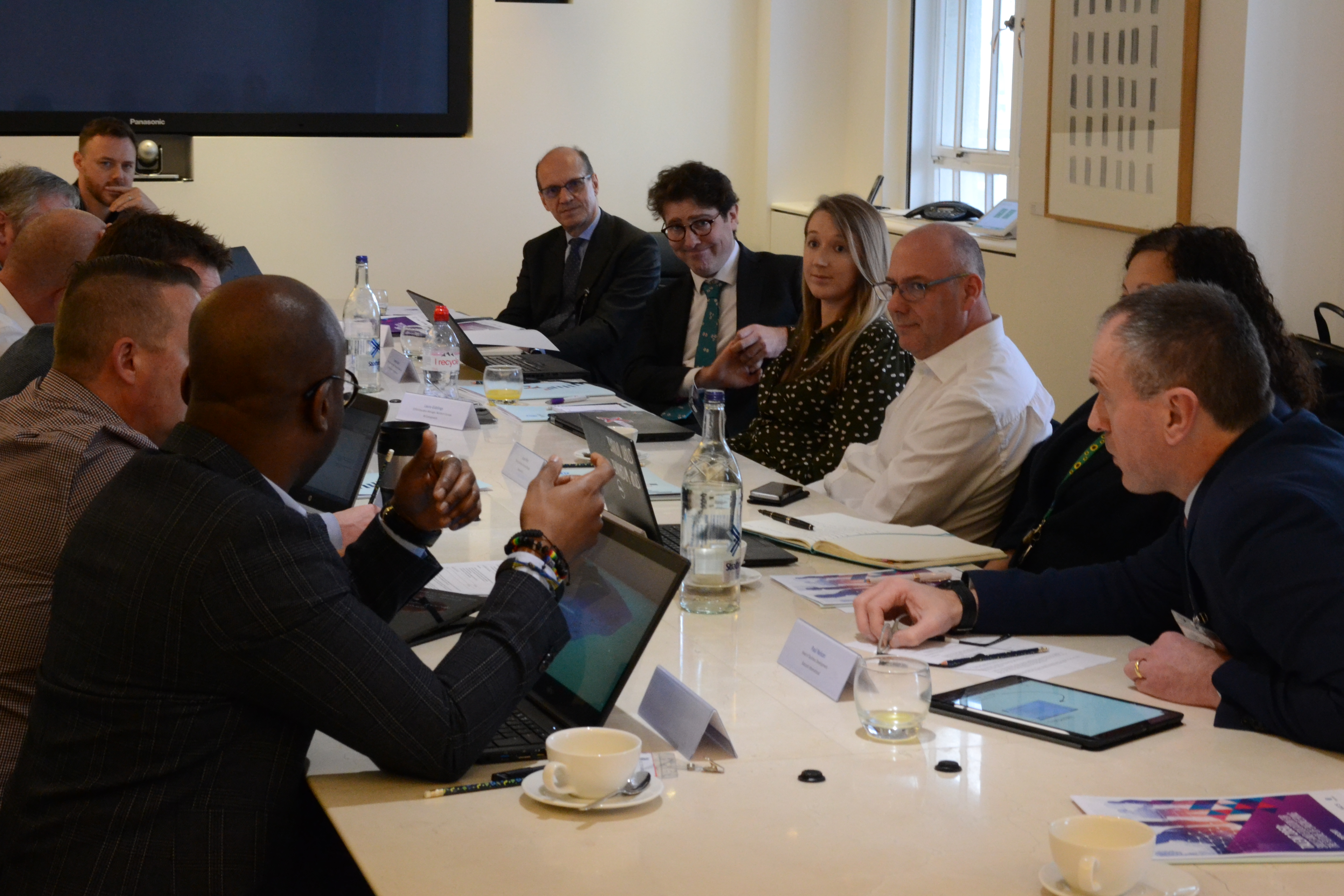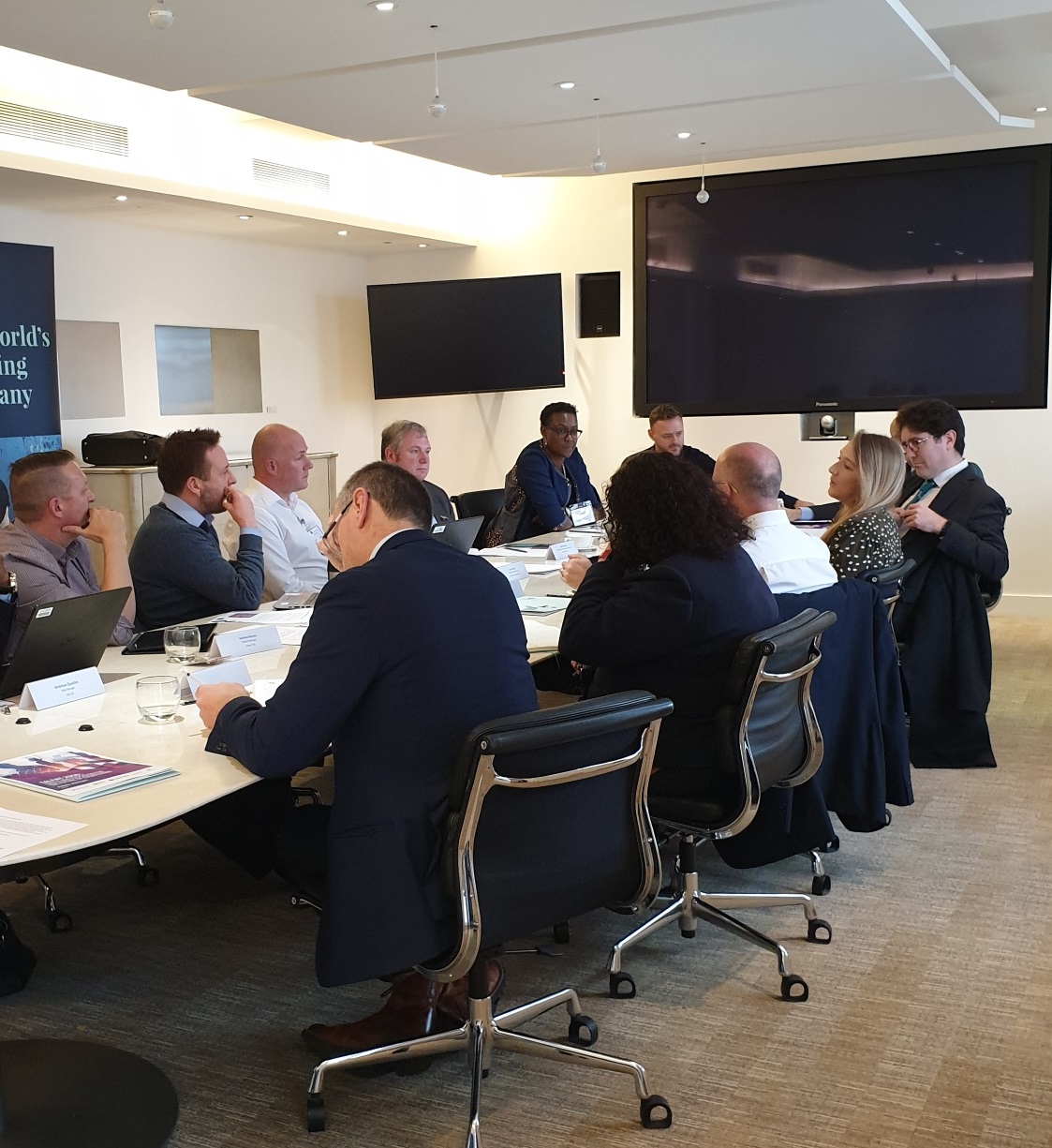A catalyst for change: driving the skills debate within engineering
With skills challenges as a current hot topic within the education sphere, Pearson recently held an inaugural roundtable discussion on the subject, focusing on the engineering sector.
The Pearson Engineering Skills Forum took place on 26th November at the Strand offices in central London. The discussion was attended by representatives from eleven different organisations, including Airbus, Siemens and Halliburton. This allowed for a dynamic conversation, with perspectives from across the sector.

As a basis for the conversation, research from the National Centre for Universities and Business (NCUB) Talent 2050 report was presented; we were delighted that the author of the report, Paul Jackson, was able to open the discussion. Highlighting the main findings and recommendations, Paul looked at a broader perspective of skills, identifying four key pillars:
- Core STEM skills (Science, Technology, Engineering, Mathematics)
- Creative Thinking
- People skills
- Enterprise

By identifying these foundations, the report addresses a different way of recruitment: considering intersectoral mobility of staff to identify a ‘reservoir of talent’. To close his presentation, Paul outlined that there is a need to do something different: “Clearly we need a proper collaboration between those in education, those that are in business, and government."
Five key themes from the discussion
Exposure: The group agreed that graduates aren’t always entering the workplace with the skills they need. This can be caused by the pace of work and technology moving ahead of what is being taught, but often it is a lack of softer skills, problem solving and communication. Work-readiness improves when students have exposure to a working environment, as it provides confidence and understanding of what is really required to deliver in the workplace. Furthermore, students do not always realise that engineering jobs are present across a wide range of sectors, even though it covers every part of our daily lives, such as transport, entertainment and communication. In fact, according to an article published on FE news, engineering contributes to 23% of the UK’s total turnover, and we need to be able to showcase this to students from a young age.

Perception: There is a need to change the view of the value of different education pathways such as vocational and technical training. We should be thinking about why university is seen as a mark of achievement, and how we can make it clear that it is not the only pathway. Laura Giddings, STEM Education Manager at RS Components, stated that, “research shows we have to start the STEM journey in primary schools”. Paul Nelson, who works for Babcock, also raised an interesting point for reflection: changing the question we ask young people from, ‘What do you want to be?’, to ‘What do you want to do?’
Collaboration: The conversation continued around the need for all key stakeholders to be involved, including teachers and parents. The theme of collaboration featured strongly throughout the morning and employers shared great examples of ways they are already working with education, through both formal learning and workplace development. However, it was agreed that this engagement needs to be better harnessed and supported to systematically improve sector skills.
Flexibility: Change has to be a two-way interaction where people are open to innovation and are able to adapt. This particularly applies to educators and the group discussed the need to stop doing things in the same way that they have been done in the past. For Paul Ashbee (GKN Aerospace), one of the important points to consider is being able to engage with the learners to ensure that positive learning is achieved. Paul Nelson added: “What is the investment that we are putting into the skills of our teachers and trainers?” However, a key point was raised around the fact that schools need the capacity and resources to be able to do this.
Diversity: This topic also featured prominently, and gender inequality is an example of this. Engineering is traditionally seen as a male-dominated career and it was acknowledged that a shift is needed to increase inclusivity. Although the group discussed certain organisations that have achieved positive gender balance, overall the sector has not seen progress within engineering since 2017 in the UK (according to the 2019 IET Skills Survey). Paul Jackson summed up the importance of this point: “If we are really going to be innovative, we’ve got to be more diverse.”
Presenting solutions, not problems
To present a more joined-up approach across the sector, ideas and experiences were brought forward by the group, such as school visits, exhibiting at fairs and introducing programmes at industry level. Jason Phin spoke about an initiative at Siemens called the ‘Curiosity Project’, which starts at Key Stage 1 and aims to encourage students to take STEM subjects. Participants added that, as well as links between organisations and schools, there is also a need for more links between each level of education; from primary right through to higher education. As part of this, we also need to think ahead to the topics of tomorrow: sustainability, an ageing population and the digital future, such as considering artificial intelligence.

Overall, it was agreed that the first Pearson Skills Forum was a success, however the real work now begins to drive the conversation forward. Participants concluded that that the skills gap is the responsibility of the whole sector, and Pearson can use this discussion as a springboard to facilitate alignment between employers, educators, professional bodies and government. As an example, “Only one in four companies (26%) have partnerships with FE colleges or universities to help them develop courses matched to their needs (IET Survey).” Pearson can help to bridge that gap.
At Pearson, our mission is to deliver high-quality education that empowers people to progress in their lives through learning. For further reading on skills and challenges, you can access the recently published annual CBI/Pearson Education and Skills Survey report. If you have any questions about this event, or our qualifications, please contact us at progression@pearson.com.
Employer representatives
Paul Jackson, Jasia Education Ltd.
Laura Giddings, RS Components
Jason Phin, Siemens
Paul Ashbee, GKN Aerospace Services
Gavin Jones, Airbus
Andrew Dakers, West London IoT Employers Group and West London Business
Andrew Barton, Semta/EAL
David Corden, Ministry of Defence
Paul Nelson, Babcock International
Lamé Verre, Halliburton
Ambrose Quashie, HS2
